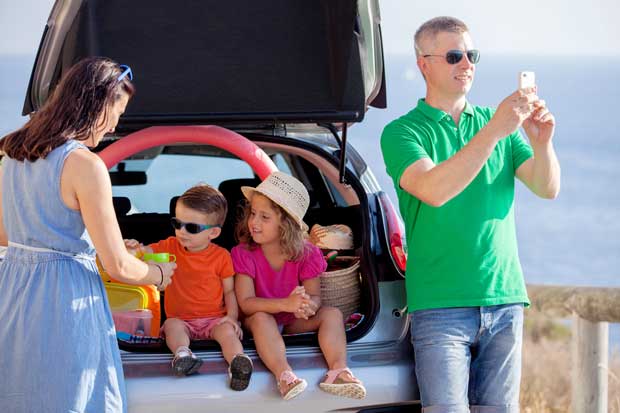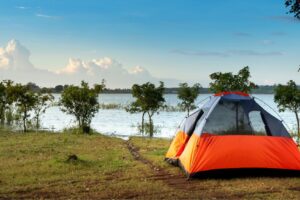Family Road Trip: A Guide on How to Stay Safe
Embarking on a family road trip is a thrilling adventure filled with the promise of bonding, exploration, and creating lasting memories. However, ensuring the safety of your loved ones should be a top priority to make the journey enjoyable and worry-free.
From careful planning, including meticulous vehicle checks and route mapping, to on-the-road precautions like frequent breaks and emergency preparedness, this comprehensive guide will provide you with essential tips on how to stay safe during your family road trip.
Taking proactive measures and considering expert advice ensures you and your family a smooth and secure travel experience.
Pre-Trip Planning
The foundation for a safe family road trip lies in thorough pre-trip planning. Start by checking your vehicle’s condition, including tires, brakes, fluids, and lights. If your car is due for a service, schedule it well before your journey.
Ensure you have a spare tire, jack, and essential tools in case of unexpected breakdowns. Additionally, plan your route ahead of time. Utilize GPS navigation systems, online maps, and travel apps to identify the best roads, rest areas, and accommodations.
Inform a friend or family member about your itinerary and expected arrival times, providing an extra layer of security.
Pack Wisely
Packing efficiently is about fitting everything you need and ensuring that the weight is distributed evenly in your vehicle. Overloaded cars can be challenging to maneuver and may lead to increased fuel consumption.
Prioritize essentials such as first aid kits, medications, snacks, and water. It’s crucial to pack for unpredictable weather conditions. Include appropriate clothing, blankets, and rain gear, especially if your route takes you through different climates.
Ensure you have all necessary documents, including identification, insurance papers, and vehicle registration.
Emergency Preparedness
No matter how well you plan, emergencies can still happen. Understanding your legal rights and responsibilities in case of an accident is equally crucial. Law firms like Herrman & Herrman specialize in guiding in such situations.
In the unfortunate event of a road incident, contacting legal professionals can be essential for navigating complex legal processes, insurance claims, and potential litigation.
Additionally, be prepared by packing an emergency kit containing items such as a flashlight, batteries, a first aid kit, a multipurpose tool, and essential medications. Keep a spare tire, jumper cables, and a roadside assistance kit in your vehicle.
Ensure that your cell phones are fully charged, and consider carrying a portable charger. Familiarize yourself with emergency contact numbers for the areas you’ll travel through, and program them into your phone.
In case of a breakdown or accident, having quick access to assistance can make all the difference.
Child Safety
If you’re traveling with children, their safety is of utmost importance. Invest in age-appropriate car seats and ensure they are correctly installed before hitting the road. Regularly check if the seats are securely fastened and the straps are adjusted to fit snugly.
Plan for frequent breaks to allow kids to stretch their legs and burn off excess energy. Bring entertainment such as books, games, and electronic devices to occupy them during long stretches. Establish ground rules for behavior inside the car to avoid distractions for the driver.
Rest Stops and Breaks
Fatigue is a significant factor in road accidents, so taking regular breaks is essential. Plan rest stops every few hours to stretch your legs, grab a snack, and rest your mind. Use these breaks to inspect your vehicle for any issues, including tire pressure and fluid levels.
Avoid driving during late hours when fatigue tends to set in. Plan your journey so that most driving is done during daylight hours. Adequate rest before the trip is crucial, as a well-rested driver is more alert and responsive.
Hydration and Nutrition
Staying hydrated and well-nourished is vital for alertness and overall well-being during a road trip. Carry ample water and snacks, opting for healthy options to maintain energy levels.
Avoid excessive caffeine intake, as it can lead to dehydration and increased fatigue later on. Plan your meals, aiming for a mix of wholesome options. Choose rest stops with clean facilities where you can enjoy a balanced meal.
Proper nutrition contributes to physical well-being and mental alertness, making the journey safer for everyone.
Final Words
A family road trip can be a rewarding and unforgettable experience when safety is prioritized. From meticulous pre-trip planning to on-the-road precautions, each step plays a crucial role in ensuring the well-being of your loved ones.
By following these guidelines, you can confidently embark on your adventure, knowing that you’ve taken the necessary measures to stay safe and make lasting memories together.




































No comments